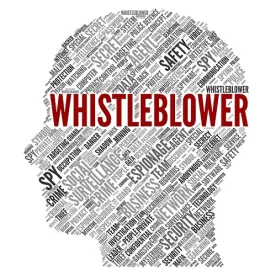OSHA enforces the whistleblower provisions of 22 separate statutes. The number of retaliation claims filed under the various statutes has risen steadily each year and the cost of investigating them has placed a tremendous strain on OSHA’s fiscal and physical resources. Searching for a way to reduce the costly and time consuming process of an investigation and litigation, OSHA conducted pilot Alternative Dispute Resolution (ADR) programs in two of its regions from October 2012 to September 2013. The pilot programs were well received by employers and whistleblowers alike, allowing for quick resolutions of disputes without the need of enduring a lengthy and burdensome OSHA investigation. These pilot programs were such a success that on August 19, 2015, OSHA published CPL 02-03-006, Alternative Dispute Resolution (ADR) Processes for Whistleblower Protection Program, which affords all OSHA regions with the option of adopting an ADR program at the discretion of each Regional Administrator.
In what OSHA is calling its “early resolution” process, the parties to a whistleblower complaint agree to attempt to resolve the whistleblower complaint with the assistance of a neutral, confidential OSHA representative who will not be involved in the investigation if the ADR is unsuccessful. The early resolution process can be elected either before a case has been assigned for an investigation or at any point during an ongoing investigation. The investigation will be stayed while the parties pursue the ADR. The goal of the program is to achieve a quick, voluntary resolution of a whistleblower dispute rather than undertaking an investigation to determine the validity of the complaint and potential statutory violations. A settlement may be reached at any time after the filing of the complaint and prior to the issuance of the Secretary’s findings or the Secretary’s filing of a complaint in federal district court. If the parties elect to pursue early resolution but fail to enter into a settlement agreement within a reasonable period of time, the case will be transferred to an OSHA whistleblower investigator to start or resume investigation of the complaint.
Parties in whistleblower cases also have the option of settling their whistleblower complaint independently or with the assistance of an investigator or other ADR service during the OSHA investigation. So how do employers determine whether the early resolution process is right for them? Employers should consider these core concepts:
-
The early resolution process is entirely voluntary. Both parties must mutually agree to participate, and either may choose to terminate the process and return the case to the investigatory process for any reason.
-
OSHA will assign a Regional ADR coordinator (RADRC) to assist the parties in resolving a whistleblower complaint by mutual agreement. RADRCs are completely neutral and have no decision-making authority. Although the RADRC may give the parties an objective view on the strengths and weaknesses of their positions, he or she may not offer judgment on the merits of the case.
-
OSHA demands that the parties participate in the early resolution process in good faith, treating one another and the RADRC with respect throughout the process. Parties must come to the process fully prepared to discuss resolution of the whistleblower complaint and have full authority to settle the dispute. If OSHA determines that one or both of the parties are not participating in the early resolution process in good faith, the RADRC may terminate the effort and return the case to investigators.
-
The early resolution process is confidential. The RADRC will not discuss the merits of the complaint or the content of the early resolution discussions with OSHA’s investigators. ADR case files will be kept separate from investigation files and their content is generally exempt from disclosure under FOIA. Keep in mind, however, that the terms of an OSHA whistleblower settlement agreement, whether agreed upon during the early resolution process or by other means, will be disclosed to OSHA and may be made public by OSHA in response to a FOIA request or otherwise.
-
This option may significantly reduce the cost of responding to a whistleblower complaint. An investigation may disrupt your business affecting productivity and can lead to full blown federal litigation. It costs nothing to attempt to agree upon a resolution that satisfies the parties. OSHA even offers early resolution conferences by telephone in the event that travel to attempt early resolution would be too costly or create hardship for either party.
-
And employers must also evaluate many of the same risks and benefits they would assess in considering ADR and settlement versus litigation generally: What are the risks and costs in litigating the case versus settling? What precedent could litigating the case create? How much time will litigating the case and possibly appealing the verdict consume versus the quick finality of reaching a settlement?



 />i
/>i
